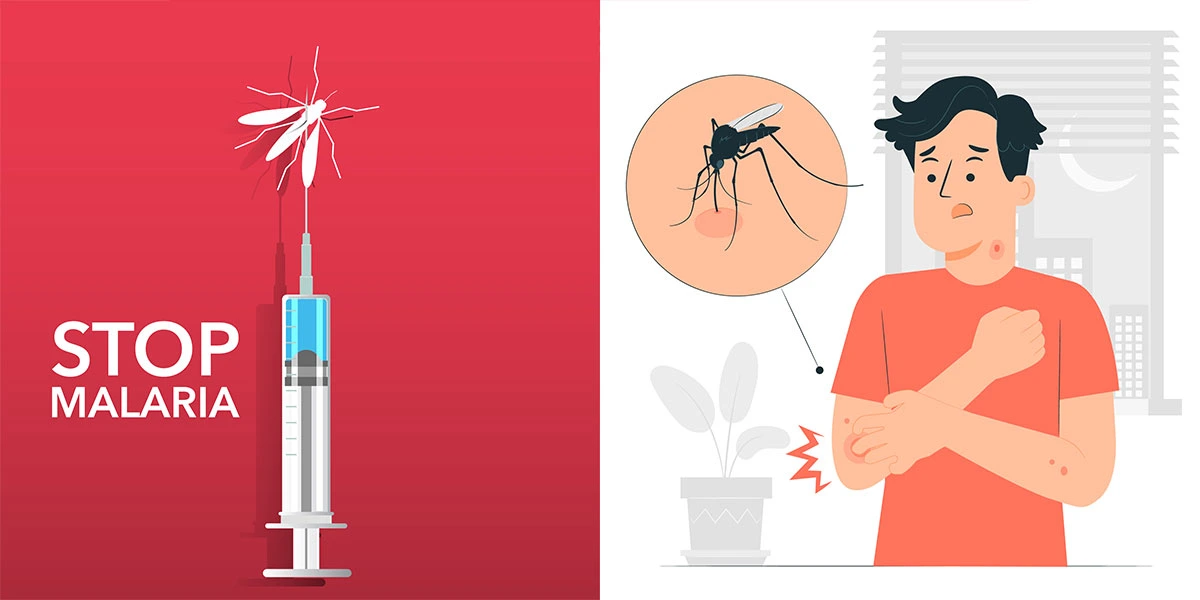Malaria is a serious mosquito-borne infectious disease caused by the Plasmodium parasite. It is prevalent in certain regions of the world, especially in tropical and subtropical areas. Here are some safety tips to help prevent malaria Malaria is a serious and sometimes fatal disease caused by a parasite that commonly infects a certain type of mosquito which feeds on humans:
- Use mosquito nets: Sleep under a mosquito net, especially one treated with insecticide, to protect yourself from mosquito bites during the night.
- Wear protective clothing: Wear long-sleeved shirts, long pants, socks, and closed-toe shoes to reduce exposed skin and avoid mosquito bites.
- Apply insect repellent: Use insect repellents on exposed skin, following the product instructions. Look for repellents containing DEET, picaridin, or oil of lemon eucalyptus, as these are effective against mosquitoes.
- Avoid outdoor activities during peak mosquito hours: Mosquitoes that transmit malaria are most active during dusk and dawn, so try to limit your outdoor activities during these times.
- Stay in air-conditioned or screened accommodations: If possible, stay in places with air conditioning or well-screened windows and doors to minimize mosquito entry.
- Eliminate standing water: Mosquitoes breed in standing water, so make sure to empty, cover, or treat any containers that might hold water around your living areas.
- Take malaria prophylaxis: If you are traveling to a malaria-endemic area, consult a healthcare professional before your trip to get appropriate malaria prophylaxis medication.
- Know the symptoms of malaria: Familiarize yourself with the symptoms of malaria, such as fever, chills, headache, muscle aches, and fatigue. Seek medical attention immediately if you experience these symptoms, especially if you have been in a malaria-endemic area.
- Get tested: If you suspect you may have malaria or have been in an area where malaria is prevalent, get tested for the disease, even if you don’t have symptoms.
- Protect children and pregnant women: Extra care should be taken to protect children and pregnant women, as they are more vulnerable to severe complications from malaria.

Remember that malaria is a serious and potentially life-threatening disease, so taking preventive measures is crucial, especially if you are traveling to or living in a malaria-endemic region. If you suspect you have malaria or experience symptoms after visiting a malaria-prone area, seek medical attention promptly for diagnosis and treatment.
If you don’t like this article/post please share your feedback.





